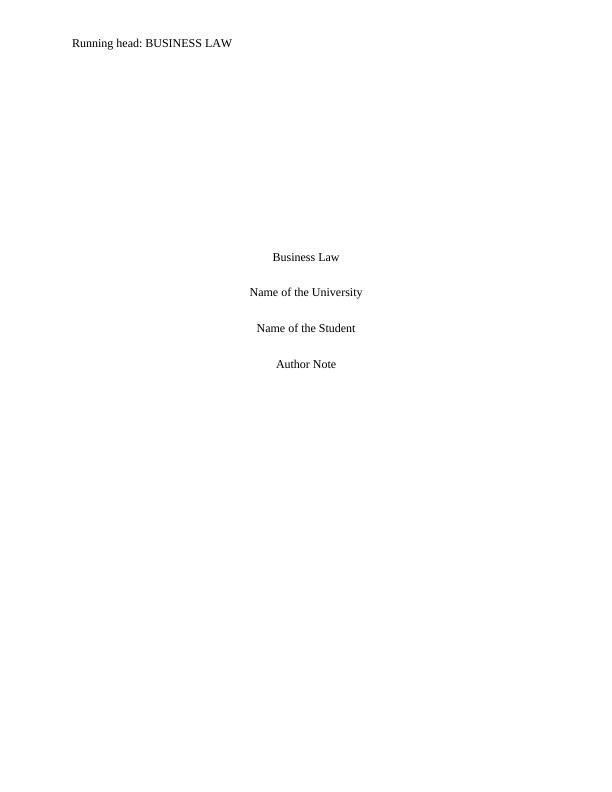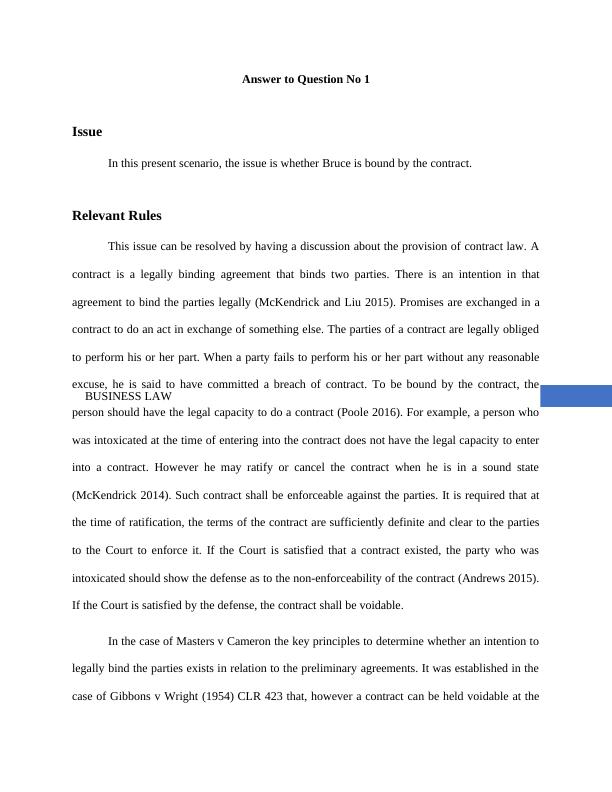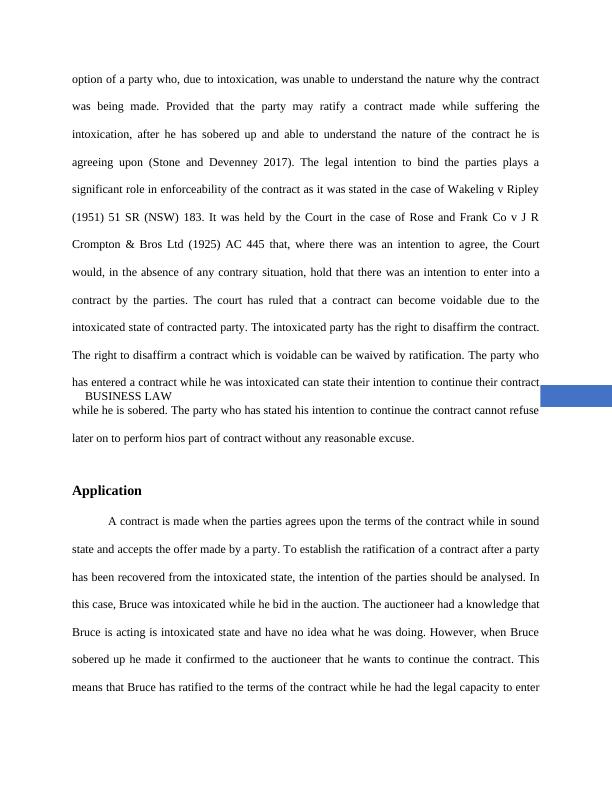Business Law: Contractual Obligations and Liability
9 Pages2427 Words302 Views
Added on 2023-06-05
About This Document
This study material discusses the legal principles related to contractual obligations and liability in business law. It provides answers to two case studies related to contract law, covering topics such as ratification, legal capacity, intention to bind parties, pre-contractual duty, and unfair contract terms. The material also cites relevant cases and laws to support the arguments presented.
Business Law: Contractual Obligations and Liability
Added on 2023-06-05
ShareRelated Documents
End of preview
Want to access all the pages? Upload your documents or become a member.
Contract Law Issue - Assignment
|6
|963
|73
Business Law Assignment
|9
|1919
|166
Business Law
|9
|2249
|135
Business Law: Validity of Contracts and Consumer Guarantees
|12
|2568
|198
(Solved) Assignment of Commercial Law
|4
|720
|32
Business Law
|13
|2635
|256



